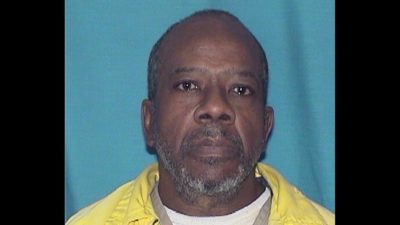Family members of an inmate who died from alleged abuse in Mt. Sterling’s Western Illinois Correctional Facility say that the state’s top officials have ignored the prison’s pattern of abuse for nearly a decade.
Chicago Attorney Jon Erickson and the family members of 65 year old Larry Earvin held a press conference at Chicago’s Thompson Center on Wednesday saying that Governor J.B. Pritzker, Lieutenant Governor Juliana Stratton, Attorney General Kwame Raoul, and the Illinois Legislative Black Caucus have all ignored pleas by civil rights lawyers to address a pattern of documented violent abuse by correctional officers towards inmates at the Mt. Sterling facility. Erickson says it’s the height of hypocrisy to be fighting for equality and then allowing the three guards to receive salary on paid administrative leave while Earvin’s family gets nothing: “I think it is a glaring hypocrisy exhibited by this administration and particularly the Attorney General Kwame Raoul claiming that they are for police accountability and racial justice, and yet, they are paying taxpayer dollars to defend these officers that brutally murdered Mr. Earvin. It’s the height of hypocrisy and betrayal that the State of Illinois would give these officers close to half a million dollars on paid leave salary and yet choose to deny justice to Larry Earvin’s family.”
In a scathing report released by Chicago’s WBEZ on Tuesday, a former staff member at the facility confirmed that prisoners were routinely taken by a group of correctional officers to an area outside of the prison’s segregation unit where no cameras could reach known as a “blind spot”, and subsequently beat inmates. According to a prison report obtained by WBEZ, a nursing staff member had told another staff member that was what had happened to Larry Earvin days before his death in June 2018. She told her co-worker that one of the other guards, Blake Haubrich, had cornered her and told her “she needed to keep out of what goes on down there.” The exchange is documented in an incident report filed by the employee who was told the story. Haubrich was not criminally charged over Earvin’s death, but is named in a civil lawsuit filed by Earvin’s family over the alleged beating. According to documents reviewed by WBEZ, Haubrich has also been accused of assaulting prisoners during transfers to segregation, including in the alleged blind spot. Haubrich continues to work for the Illinois Department of Corrections, but is on paid administrative leave.
WBEZ obtained video footage of the incident of Earvin’s beating in October 2020 after two years of asking for it for public dissemination. Due to prisons falling under a certain statute, prison video footage is not subject to FOIA requests due to security concerns. Earvin died June 26, 2018, from blunt trauma to the chest and abdomen at a Springfield hospital, just a few months before he was scheduled to be released.
The Illinois Department of Corrections responded to the WBEZ article after a request from WLDS News. Lindsay Hess, IDOC’s Public Information Officer responded with the following answer in a written statement:
Protecting the safety of staff and individuals sentenced to IDOC custody is the highest priority of this administration. Under the leadership of Director Rob Jeffreys, we have increased security measures statewide. These measures include, but are not limited to:
* The installation of 79 new cameras at Western Illinois Correctional Center over the last year.
* The institution of a unit management system at several facilities, including Western Illinois, to create greater contact between counselors, security staff, and people in custody. This approach increases opportunities for communication and improves the Department’s responsiveness to the concerns of incarcerated people.
* The hiring of an attorney to serve as Chief Inspector. Chief Latoya Hughes is charged with providing oversight of the statewide grievance system and identifying needed reforms to ensure the process is fair, consistent, and responds to the needs of the incarcerated population.
Due to pending litigation, no further information can be provided at this time.
Background: Since the incident, all staff at Western Illinois Correctional Center have received additional training on de-escalation techniques and effective communication. The course has been implemented statewide and is a requirement for all new employees. In addition, a new warden were appointed to manage the facility.
Erickson says that the reforms are good but it doesn’t hold the guards accused of assaulting Earvin and others to account: “They can institute all these very good and needed reforms on the ground within these facilities, but without accountability, they do no good. When the governor and the attorney general refuse to hold those responsible accountable and refuse to be accountable to the families of the victims, they create a culture within the prison system that allows for this conduct to continue. If a correctional officer knows that they can engage in prisoner abuse and not be held financially accountable and that the state will not be held financially accountable, then there will not be real change. Until there is real accountability by being held to account by our court system that’s designed to compensate victims and then use other statutes to withhold accountability, it’s not really going to change.”
Federal authorities launched an investigation into Earvin’s death, and, in December 2019, the U.S. Attorney’s Office in the Central District of Illinois charged Todd Sheffler of Mendon, Willie Hedden of Mt. Sterling, and Alex Banta of Quincy in assaulting Earvin “without legal justification while he was restrained and handcuffed behind his back and while he posed no physical threat to the defendants or other correctional officers.” The federal indictment also alleges that the guards falsified reports about the incident and misled state police when they denied they had any knowledge of the assault. Hedden has since plead guilty to violation of civil rights in the case back in March. Banta and Sheffler are due for trial next week.
During WBEZ’s investigation, they also uncovered that eight other prisoners have filed lawsuits for beatings that allegedly took place in the prison’s “blind spot” near the segregation unit. Five of the cases involve at least one of the guards indicted in Earvin’s death, Hedden, Sheffler or Banta. Three others involved Haubrich. WBEZ reports that the state has paid to settle three of the cases. A judge sided with the department against one prisoner and dismissed another for technical reasons. The other three cases are still moving through the courts.
Erickson says that Earvin’s case, Earvin’s family lawsuit, and the other cases are a matter of civil rights. He says that the systems is set up to disregard prisoner’s civil rights because of the crimes they have committed: “The lawsuit has its roots in civil rights law that were enacted shortly after the Civil War ended to combat lynchings. The portion of the law the lawsuit refers to is often called the ‘Ku Klux Klan law.’ This is civil rights. It’s civil rights at its most obvious. We are talking about racial justice along with criminal justice at an intersection here. When you take a population, move them far from their family members, their loved ones, and those that can keep a watchful eye on them and place them into the custody and care behind the brick and mortar walls of a prison subject to the random and capricious behavior of the security and prison personnel, it’s a recipe for disaster.” Erickson says, too, that Earvin’s case is also one for a need for more mental health services for prisoners. He believes that current reform in that arena are beginning to take shape and help out the prison population.
Erickson’s criticisms on behalf of the family come back to the current state government. He says he does not take issue with the state employee’s labor union AFSCME: “AFSCME is doing what they are supposed to be doing. They are supposed to represent their members for good or for bad. I don’t take issue with that, but that doesn’t alleviate the governor and the attorney general for doing what they are supposed to do and that is supposed to be police accountability, racial justice, and certainly providing justice and compensation to the victims’ families in these brutal cases. They are perfectly happy to keep these correctional officers on the payroll, put them on administrative leave. One of the officers is currently on the payroll, and that was an officer that was implicated in at least 3 other beatings in this blind spot at Western. He is also the officer that alleged to have threatened a nurse according to WBEZ who acted as a whistleblower. She filed a report several days after Mr. Earvin’s beating saying that she is aware that this has been going on at that blind spot at Western Illinois for a very long time. It’s a systemic problem. It’s persistent. She said there was victim after victim being brought into the healthcare unit who had sustained these beatings from the guards. She was cornered in a hallway and told to stay out of it and mind her own business, and not put her nose where it doesn’t belong. It’s clear witness intimidation, and the person that did that is still on the payroll.”
The family is seeking compensatory and punitive damages in the lawsuit. Governor J.B. Pritzker’s office and Attorney General Kwame Raoul’s office has not returned comment on the case.




